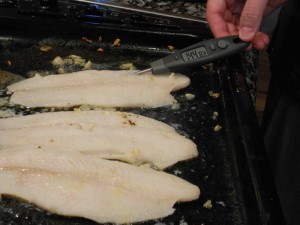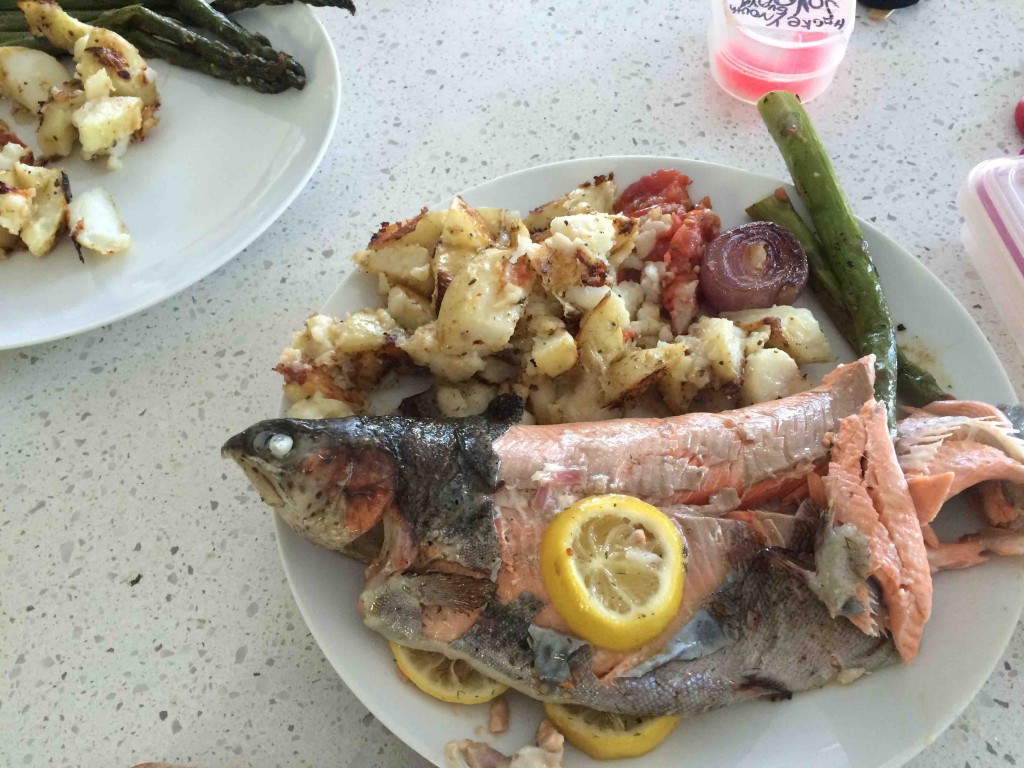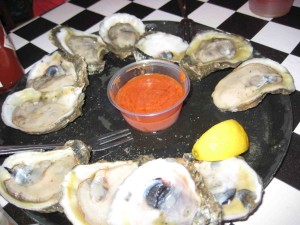I was talking with daughter Braunwynn today about her future academic and travel plans. She also wanted to know my preferred way to cook pork chops.
But this is about fish, and as Braunwynn said when she was in Brisbane, “How can I go back after this?”
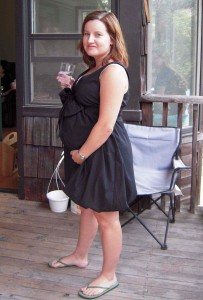 We are fortunate in Brisbane to have a fabulous supply of seafood.
We are fortunate in Brisbane to have a fabulous supply of seafood.
The U.S. Food and Drug Administration said women and children should eat more fish, but sidestepped the issue of raw or undercooked seafood for pregnant women.
It’d be nice for all the mothers out there, who are already inundated with contradictory messages, if FDA consolidated toxin and microbiological risk information into a cohesive message. For example, pregnant women shouldn’t be eating any refrigerated ready-to-eat seafood like salad or smoked salmon.
Liz Szabo of USA Today writes that federal officials for the first time are recommending that young children and pregnant or breastfeeding women eat a minimum of two to three servings a week of fish that is low in mercury, in order to give them important health benefits.
Current guidelines, released a decade ago, focused on limiting the amount of fish consumed by women who are pregnant or breastfeeding, due to concerns about contamination from methylmercury, which can cause brain damage, especially to developing brains, said Elizabeth Southerland of the Environmental Protection Agency, which released the new guidelines along with the Food and Drug Administration.
That advice apparently scared a lot of women into avoiding fish altogether. Research has shown that 21% of pregnant women ate no fish at all in the past month, said Stephen Ostroff, acting chief scientist at the FDA. Even among women who consumed fish, half ate fewer than 2 ounces a week.
 But fish contain heart-healthy oils, such as omega-3 fatty acids, says Edward R.B. McCabe, medical director of the March of Dimes Foundation. There’s also limited evidence that fish oils may promote a baby’s brain development. McCabe praised the agencies’ decision to encourage more fish consumption, along with a balanced diet.
But fish contain heart-healthy oils, such as omega-3 fatty acids, says Edward R.B. McCabe, medical director of the March of Dimes Foundation. There’s also limited evidence that fish oils may promote a baby’s brain development. McCabe praised the agencies’ decision to encourage more fish consumption, along with a balanced diet.
So now, instead of telling these women to eat no more than two servings of fish a week, officials advise them to eat at least two servings and up to three servings a week of fish that’s low in mercury. Officials continue to advise women to avoid four fish with higher mercury levels: shark; swordfish; king mackerel and tilefish from the Gulf of Mexico. Those four fish make up less than 2% of fish sold in the USA, Ostroff says.
Nine of the 10 most frequently sold fish in the USA are lower in mercury, Ostroff says. The fish used in fish sticks and other commercial products is also usually low in mercury, he said. Fish that are lower in mercury include shrimp, pollock, salmon, canned light tuna, tilapia, catfish and cod, he said.
“The health benefits far outweigh any risk,” Ostroff says.
The draft’s updated advice did recommend that pregnant or breastfeeding women limit their consumption of white (also called albacore) tuna to 6 ounces a week.
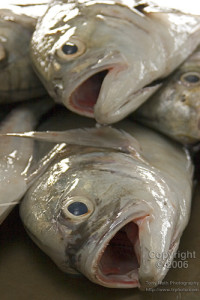 The common seafood bacterial pathogens that form biofilms are Vibrio spp., Aeromonas hydrophila, Salmonella spp., and Listeria monocytogenes. As these organisms pose a global health threat, recent research has focused on elucidating methods to eliminate these biofilm-forming bacteria from seafood, thereby improving food hygiene. Therefore, we highlight recent advances in our understanding of the underlying molecular mechanisms of biofilm formation, the factors that regulate biofilm development and the role of quorum sensing and biofilm formation in the virulence of foodborne pathogens.
The common seafood bacterial pathogens that form biofilms are Vibrio spp., Aeromonas hydrophila, Salmonella spp., and Listeria monocytogenes. As these organisms pose a global health threat, recent research has focused on elucidating methods to eliminate these biofilm-forming bacteria from seafood, thereby improving food hygiene. Therefore, we highlight recent advances in our understanding of the underlying molecular mechanisms of biofilm formation, the factors that regulate biofilm development and the role of quorum sensing and biofilm formation in the virulence of foodborne pathogens.



